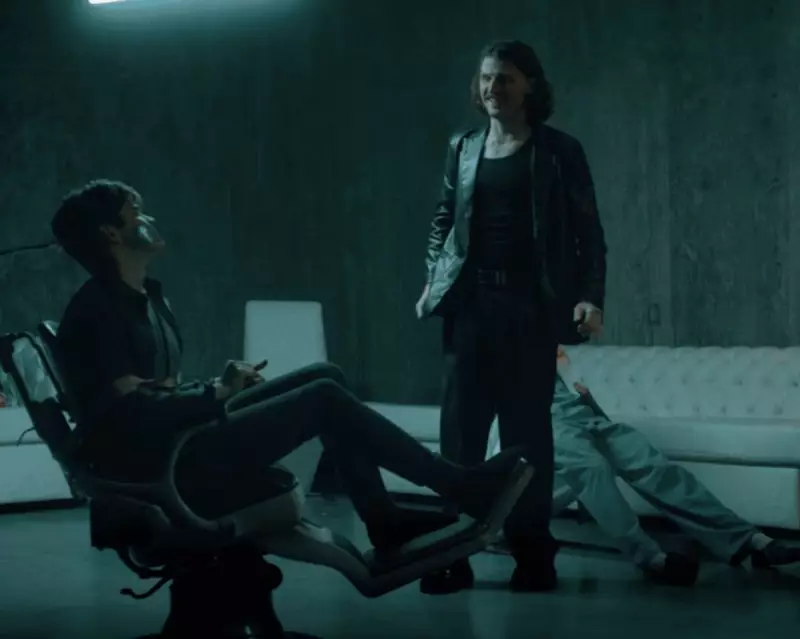
In a bold cinematic experiment that blurs the lines between comedy and psychological horror, the new film 'Don't Trip' delivers a scathing critique of Hollywood's dark side. This lo-fi shocker follows two ambitious but desperate filmmakers as they navigate the treacherous waters of the entertainment industry, only to discover that the real monsters aren't on screen but in the boardrooms and backlots.
The Unsettling Reality Behind the Glitter
Director Trevor Stevens crafts a deliberately rough-around-the-edges aesthetic that perfectly captures the gritty reality of struggling artists in Tinseltown. The film's lo-fi approach isn't just a stylistic choice—it's a narrative device that amplifies the raw, unsettling truth about what it takes to make it in an industry built on dreams and broken promises.
When Ambition Turns to Terror
What begins as a dark comedy about two filmmakers trying to catch their big break gradually morphs into something far more sinister. The film masterfully explores how the relentless pursuit of success can warp relationships and sanity, turning creative passion into something dangerously obsessive.
The Guardian's review notes that 'Don't Trip' succeeds where bigger budget films often fail—by finding genuine horror in the everyday struggles of Hollywood life. The real terror, it seems, isn't in supernatural entities but in the slow erosion of artistic integrity and personal relationships.
A Mirror to Industry Toxicity
This isn't your typical horror film with jump scares and monsters. Instead, 'Don't Trip' finds its frightening moments in pitch meetings gone wrong, creative compromises, and the soul-crushing reality of dealing with studio executives who see art as nothing more than commerce.
The film's strength lies in its ability to make audiences uncomfortable with truths they might recognise—the subtle ways the industry consumes and discards talent, the moral compromises demanded by success, and the psychological toll of constant rejection.
Critical Reception and Cultural Impact
Early reviews praise the film's unconventional approach to both comedy and horror, noting its sharp writing and authentic portrayal of Hollywood's less-glamorous side. While the lo-fi aesthetic might not appeal to mainstream audiences seeking polished entertainment, it serves as the perfect vehicle for the film's subversive message.
'Don't Trip' joins a growing wave of films willing to critique the very system that produces them, offering a timely commentary on the entertainment industry's ongoing struggles with exploitation, inequality, and the often-brutal business of making art.






